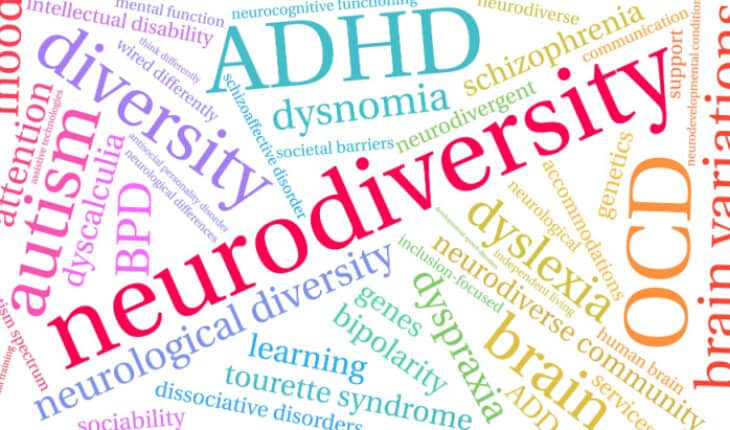65% of neurodivergent employees fear discrimination while UK businesses promote neurodiverse workplaces.
New research from Birkbeck, University of London’s Research Centre for Neurodiversity at Work commissioned by charity Neurodiversity in Business (NiB) has found significant barriers to neurodivergent employees disclosing their neurodivergence to employers.
Led by Birkbeck Professors Almuth McDowall and Nancy Doyle, the research team surveyed 1117 people, 127 employers and 990 neurodivergent employees, asking about how work is adjusted, as employers need to accommodate requests, barriers and opportunities, and neurodiverse careers.
Dan Harris, Founder and CEO of NiB says, “This rigorous, first-ever gap analysis of ‘what works’ in the UK informs best practice for employers and establishes the business gain for supporting neurodiverse talent. We have identified that tailored adjustments make a difference and support a case for specialist career pathways.”
But first employers must convince employees that work is a safe place to be openly neurodivergent. The researchers found that 65% of neurodivergent employees feared discrimination from management, 55% from colleagues and 40% said that there aren’t knowledgeable staff to help.
Meanwhile, employers report that they experience barriers to making adjustments: 69% say that lack of disclosure is an issue, 65% that managers don’t know enough and 30% had little faith that adjustments work. So there’s a catch 22 – employees don’t feel safe enough to disclose, but without saying what they need, employers don’t know how best to support.
Neurodivergent abilities and work strengths stood out as a bright spot in the findings. Among the positive aspects of neurodivergence that employers and employees identified, over 80% reported hyperfocus, 78% creativity, 75% innovative thinking, 71% detail processing and 64% people being authentic at work.
Professor Doyle says, “These qualities speak directly to the World Economic Forum’s reported top skills for 2025. The world of work needs people who can create and are divergent thinkers – neurodiverse workers bring exactly this!”
If employers want to retain such remarkable talent, they must address significant turnover intentions. The researchers found people are far less likely to leave where adjustments are tailored (50%), though women and ethnically minoritized people are more likely to leave.
Satisfaction with their career was the most important predictor of whether any employee thought about leaving, yet this was an aspect of inclusion which employers did not feel confident about.
Professor McDowall explains, “Our figures document that reasonable tailored adjustments are not simply a ‘nice to have’ but an urgent business need. Organisations need to upskill and support their line managers who are first responders.”
Worryingly, all neurodivergent employees reported low levels of wellbeing. Only half report that they feel calm and relaxed. Nearly 1 in 3 report problems with sleep. This UK data underlines that mental health at work has to remain a core priority across all organisations and all employees.
The researchers have produced an accessible report with clear recommendations which will be launched at the first Neurodiversity in Business Annual Conference on 16 March 2023 at ExCel London.
About Neurodiversity in Business
Neurodiversity in Business (NiB) is a voluntary industry forum and charity that shares good practice on neurodiverse recruitment, retention and empowerment. We foster workplaces where neurodivergent employees can pursue fulfilling, stable employment and corporates benefit from a skilled and underutilised labour pool. NiB’s 500+ member organisations include the most high-profile global corporates. A selection of the forum’s members includes Accenture, Amazon, ARM, AstraZeneca, BT, Capita, Google, Hiscox, IBM, Kimberly Clark, KPMG, Lloyds Banking Group, McDonalds, Metro Bank, NatWest, Network Rail, Openreach, Oracle, Orange, Rolls Royce plc, Sky, TalkTalk, The Open University, Unilever and Virgin Media/O2. Our extensive partner network includes ADHD Foundation, Ambitious about Autism, Auticon, British Dyslexia Association, Do-IT Profiler, Genius Within, Lexxic, National Autistic Society and many more.
Learn more at www.neurodiversityinbusiness.org.
About Birkbeck and the Centre for Neurodiversity Research at Work
Birkbeck, now in its 200th Anniversary year, is part of the University of London and committed to supporting excellence in research and career progression for all ambitious people. The Centre for Neurodiversity at Work (C4NRAW), led by Professors McDowall and Doyle, champions neuroinclusion through rigorous research. Read more here Centre for Neurodiversity at Work — Birkbeck, University of London (bbk.ac.uk)
- Combination of drugs could prevent thousands of heart attacks - 21st April 2025
- UQ Study Links Poor Teen Diets to Heavy Social Media Use - 21st April 2025
- Gut microbiome could delay onset of type 1 diabetes - 3rd April 2025






